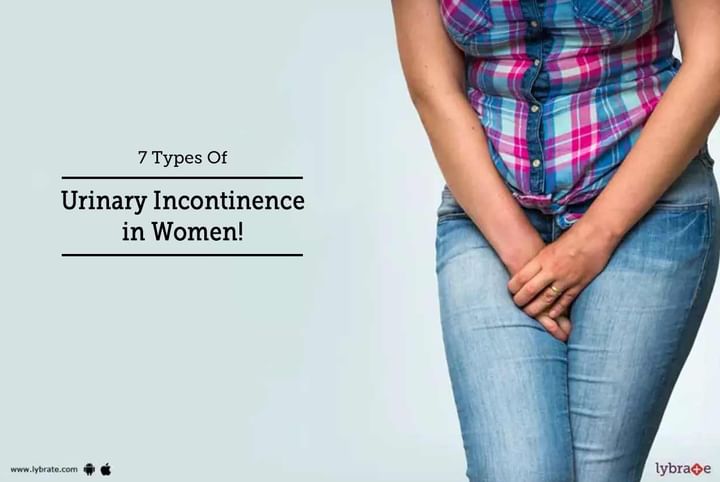Get the App
For Doctors
Login/Sign-up
Last Updated: Oct 23, 2019
BookMark
Report
7 Types Of Urinary Incontinence in Women!
Dr. Rishma Dhillon PaiGynaecologist • 35 Years Exp.MBBS Bachelor of Medicine and Bachelor of Surgery, DGO, MD - Gynae, FCPS - Gynae, DNB - Obs & Gynae
Involuntary and sudden urine loss in women is termed as urinary incontinence. Some of the contributory factors to urinary incontinence are menopause, pregnancy and childbirth.
Types:
There are seven types of urinary incontinence.
- Stress incontinence: If normal physical movements like sneezing, coughing and exercising cause small amounts of urine to leak out, it is called 'stress incontinence'.
- Urge incontinence: If large amounts of urine leak out during unexpected and at odd times, like during sleeping, it is called 'urge incontinence'.
- Overactive Bladder: This is characterized by frequent and urgent urination, along with urge incontinence or not.
- Functional incontinence: If external deterrents or physical disabilities like not being able to find a toilet, leads to sudden leakage of urine, it is called 'functional incontinence'.
- Overflow incontinence: A full bladder, at times, leads to unexpected leakage. This is called 'overflow incontinence'.
- Mixed incontinence: Whenever urge and stress incontinence occur together, it is categorized as 'mixed incontinence'.
- Transient incontinence: When urine leakage occurs due to temporary situations like infections or new medications, it is called 'transient incontinence'.
Causes:
Urinary incontinence is not a disease; it is a symptom. Infections, diabetes, or other medical conditions can cause incontinence. If incontinence is temporary, the causes might be any or all of the following:
- Urinary tract infection
- Over consumption of alcohol
- Constipation
- Too much caffeine intake
- Consuming carbonated drinks
- Decaffeinated coffee and tea
- Use of artificial sweeteners
- Foods which are too spicy, acidic or sugary
- Corn syrup
- Being on sedatives, muscle relaxants, blood pressure and heart medications
- High doses of vitamin B and vitamin C
However, if incontinence is persistent, the symptoms might be different:
- Pregnancy: During pregnancy, hormonal changes and weight gain in the body can cause incontinence.
- Childbirth: Normal vaginal delivery weakens muscles that control the bladder, thus leading to incontinence.
- Age: The bladder muscles weaken with age which, in turn, affects the bladder urine holding capacity.
- Menopause: The levels of "oestrogen" hormone drop with the onset of menopause. Oestrogen keeps the lining of the urethra and bladder healthy. The gradual damage of the bladder tissues leads to incontinence.
- Hysterectomy: The bladder and uterus are supported by the same ligaments and muscles. Surgery deteriorates the pelvic floor muscles, thus removing the uterus can lead to incontinence.
- Obstruction: Tumours in the urinary tract can block the normal urine flow. This causes overflow incontinence.
- Neurological disorders: Parkinson's disease, multiple sclerosis, brain tumours, strokes or spinal injury can cause incontinence.
In case you have a concern or query you can always consult an expert & get answers to your questions!



+1.svg)
